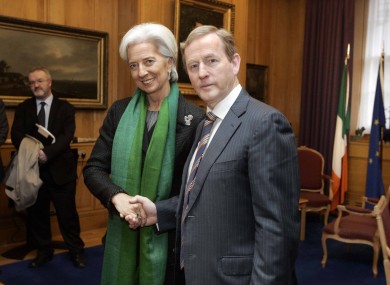The march passed off peacefully with marchers clearly enjoying themselves chanting slogans all along the route, such as 'Enda Enda Enda Out Out Out', 'No Way, We Won't Pay', Ruth Coppinger TD told the people that this was the start of the next phase of the campaign, non payment. She said that the Non Payment Network will be holding many more demonstrations throughout the country. There was a symbolic binning of Irish Water bills at Leinster House. According to Ruth Coppinger, many people had still not received irish Water bills.
Demonstration against Irish Water and Water Charges Dublin Saturday April 18, 2015
Non Payment Network, organisers of the national demonstration against Irish Water and the water charges were delighted with the massive turnout. Demonstrators gathered in lovely sunshine at the Garden of Remembrance, Parnell Square and then marched to Dail Eireann, Leinster House where they were addressed by several speakers including Ruth Coppinger and Paul Murphy of the Anti Austerity Alliance.






